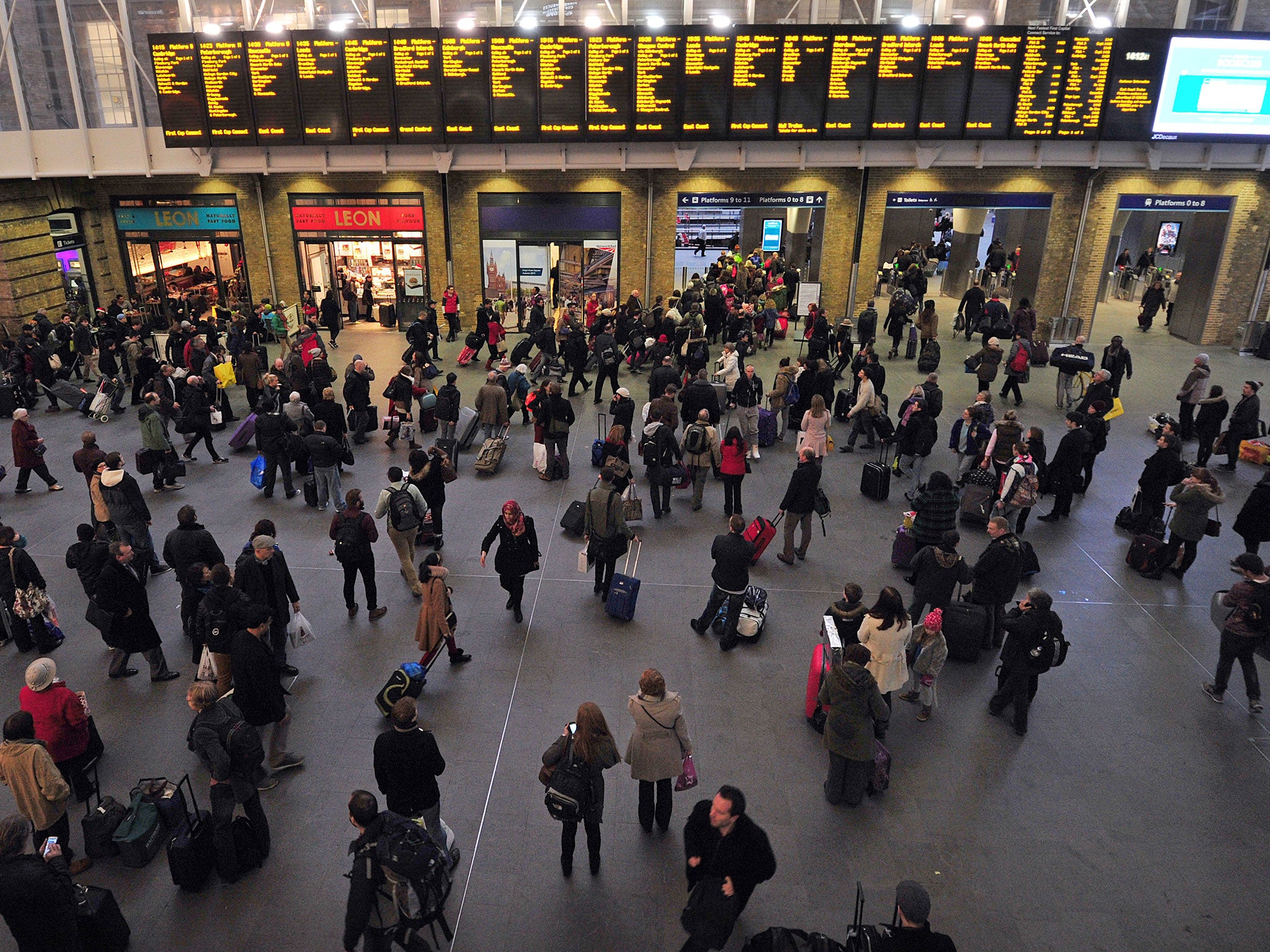Train delays are the worst for seven years
Network Rail says that an increase in passenger numbers is partly to blame for the company's poor punctuality record

Your support helps us to tell the story
From reproductive rights to climate change to Big Tech, The Independent is on the ground when the story is developing. Whether it's investigating the financials of Elon Musk's pro-Trump PAC or producing our latest documentary, 'The A Word', which shines a light on the American women fighting for reproductive rights, we know how important it is to parse out the facts from the messaging.
At such a critical moment in US history, we need reporters on the ground. Your donation allows us to keep sending journalists to speak to both sides of the story.
The Independent is trusted by Americans across the entire political spectrum. And unlike many other quality news outlets, we choose not to lock Americans out of our reporting and analysis with paywalls. We believe quality journalism should be available to everyone, paid for by those who can afford it.
Your support makes all the difference.Rail passengers are suffering more train delays than at any time for seven years, Network Rail board minutes reveal. One in every 11 trains is significantly behind schedule since April this year, according to the organisation which runs the UK's major rail lines and major stations.
The figures are an embarrassment to Network Rail which was fined £53m by rail regulators last year for missing punctuality targets. Chief executive Mark Carne has held a "performance summit" with route managers to solve the latest problems.
Network Rail is typically more to blame for delays than the companies running the trains, with hold-ups including equipment failures and signalling errors. The government-backed body is partly blaming the delays on the growing popularity of rail travel; it argues that train journeys have increased by 1.1 million since 2003-04, contributing to the difficulties. And in echoes of the infamous "leaves on the line" excuse – leaves on tracks causing train wheels to slip – Network Rail is proposing "more robust vegetation clearance", which partly means cutting back trees whose leaves can fall on the track, and reducing the number of temporary speed restrictions, according to their latest available board minutes.
The news comes at a sensitive time for Network Rail, as this is the first year of its latest five-year infrastructure investment plan, known as a control period, for which the Government is providing £38bn. Earlier this year, Network Rail was locked in negotiations with regulators to secure funding for expensive projects such as electrifying 850 miles of railway and replacing or renewing 4,350 miles of fencing.
The minutes warn that "the control period had begun badly with the first five periods being the worst" in nearly 10 years, but added that there are "no quick fixes".
Further data shows that punctuality was below 90 per cent during a four-week period this summer for the first time since 2007-08. In the first 28 weeks of that year, punctuality was 90.8 per cent against 91.2 per cent so far this year, the lowest level since.
Commuter services are considered to be behind schedule if they arrive at their terminating station more than five minutes late. Longer-distance services are considered to be on time if they arrive at their final destination within 10 minutes of the schedule.
Watchdogs warned last night it is "vital" that trains start running on time. Anthony Smith, chief executive of the independent watchdog Passenger Focus, said: "Passengers tell us that punctual trains are what they want most from the railway. It is disappointing to see that more trains were late and, while we welcome improvements in passenger information, it is vital that this decline is reversed."
Michael Dugher, the shadow Transport Secretary, added: "Out of touch ministers may talk about 'comfortable commuting', but punctuality is at its lowest level for nearly a decade and fares have risen by 20 per cent since the election."
A Network Rail spokesman said: "Getting passengers and goods to where they want to be safely and on time is at the heart of our company and what we strive to do every day. While train punctuality in Britain compares favourably with our European neighbours and is by historical standards at high levels, there is much more we can and are doing to improve train services. Over the past few years, Network Rail has reduced the delays caused by failures of its own equipment by around a quarter and we aim to continue that trend in the years ahead."
Join our commenting forum
Join thought-provoking conversations, follow other Independent readers and see their replies
Comments